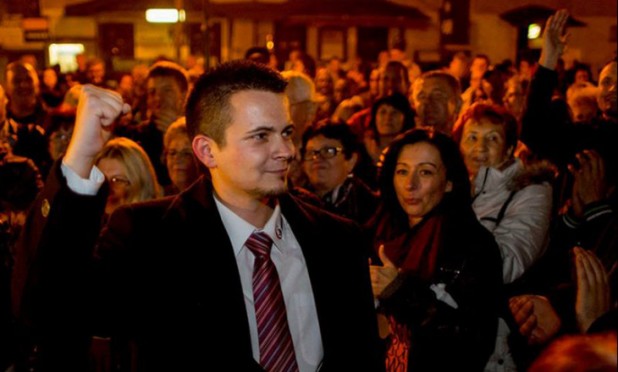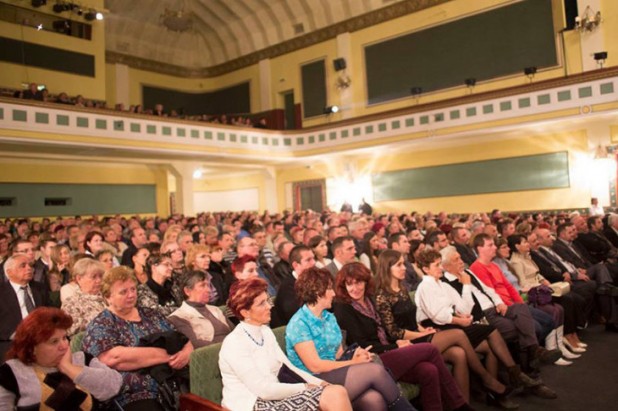The New Observer
November 11, 2015
The Hungarian town of Ózd has just completed its first year under Jobbik party leadership—and has turned out to be a shining example of what European society should look like, with extensive development programs, reduced crime, orderly honest government, and a population united by their love for their race and nation.

Ózd, located in Borsod-Abaúj-Zemplén County, Northern Hungary, is the second largest city in the region. The town caused controlled media panic one year ago when the Movement for a Better Hungary (in Hungarian, Jobbik Magyarországért Mozgalom, commonly known as Jobbik) stormed the elections in that city, winning two thirds of the vote.
The winning Jobbik candidate, 27 year old Dávid Janiczak, crushed the Fidesz party candidate (and sitting mayor) by wining 64.4 percent of the vote. Fidesz polled 31 percent of the vote, despite its candidate being officially backed by that party’s leader and current Hungarian Prime Minister, Viktor Orbán.
The Hungarian Communist Party, which, after the fall of the Iron Curtain, renamed itself into the “Hungarian Socialist Party” (Magyar Szocialista Párt, or MSZP), which was hoping for a good turnout in the very working class town, was thoroughly crushed, polling just 3.2 percent.
On November 6, 2015, in front of a packed to capacity town hall, Mayor Janiczek gave his one year city administration report to a tumultuous reception from his townsfolk.
It took more than two hours to list all of the achievements of the town council, which included programs to boost the local economy, tourism, agriculture, and the cutting of crime.
It was in the social sphere that the most telling reforms were elucidated: the mayor announced that social housing was only available to those who were of good character—using a slogan of “no criminal records, no criminal life” as a mantra and guideline for the allocation of publicly financed houses.
 This rule excluded European riff-raff, but almost the entire local Gypsy population, who appear to have moved off to other cities where there are more fruitful pickings to be had. As a result, the mayor told the appreciative crowd, crime had dropped in the city by nearly 20 percent over the previous year.
This rule excluded European riff-raff, but almost the entire local Gypsy population, who appear to have moved off to other cities where there are more fruitful pickings to be had. As a result, the mayor told the appreciative crowd, crime had dropped in the city by nearly 20 percent over the previous year.
The “Legal Defence Bureau for National and Ethnic Minorities” has taken this case on review with the aim of forcing the Ózd mayor to rescind it, a move which he is contesting.
The local police services were overhauled and an equestrian unit was introduced to help patrol some of the more rural and agricultural terrain on the outskirts of the city. As a result, stock theft had declined by 35 percent over the first year.
Regular police patrols had been started in all areas, and to this end, a number of quad bikes had been purchased to increase police mobility.
Another achievement of the Jobbik mayor has been the creation of a local Business Support Office, which encourages local people to start their own businesses by providing free professional guidance on business setup, loan applications, accounting services, legal advice, and up-to-date market information.
In the less than one year of its operation, the Business Support Office had helped launch 43 new businesses, and a further 16 entrepreneurs were helped to kick-start their own business consultancies, Mayor Janiczak said.
 Daily Stormer The Most Censored Publication in History
Daily Stormer The Most Censored Publication in History




